There are principles to protect those who dare to innovate and take responsibility for the common good.
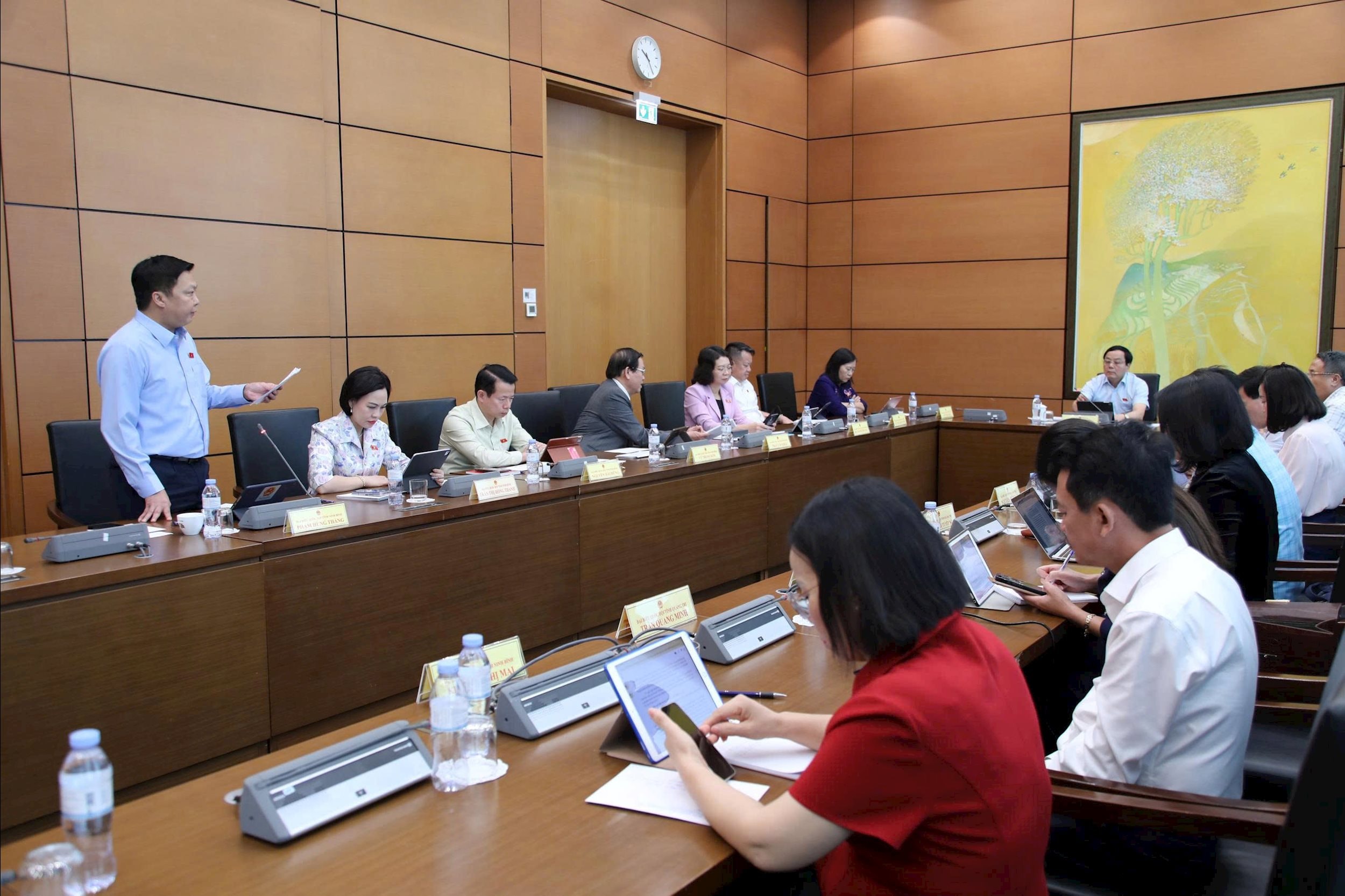
During the discussion, delegates shared the view that the draft Laws ensure constitutionality and compatibility with relevant international treaties to which Vietnam is a member; and basically ensure consistency with relevant Laws. The dossiers of the draft Laws have been received and completed according to the opinions of the National Assembly Standing Committee and preliminary examination opinions, and are qualified to be submitted to the National Assembly for consideration and decision.
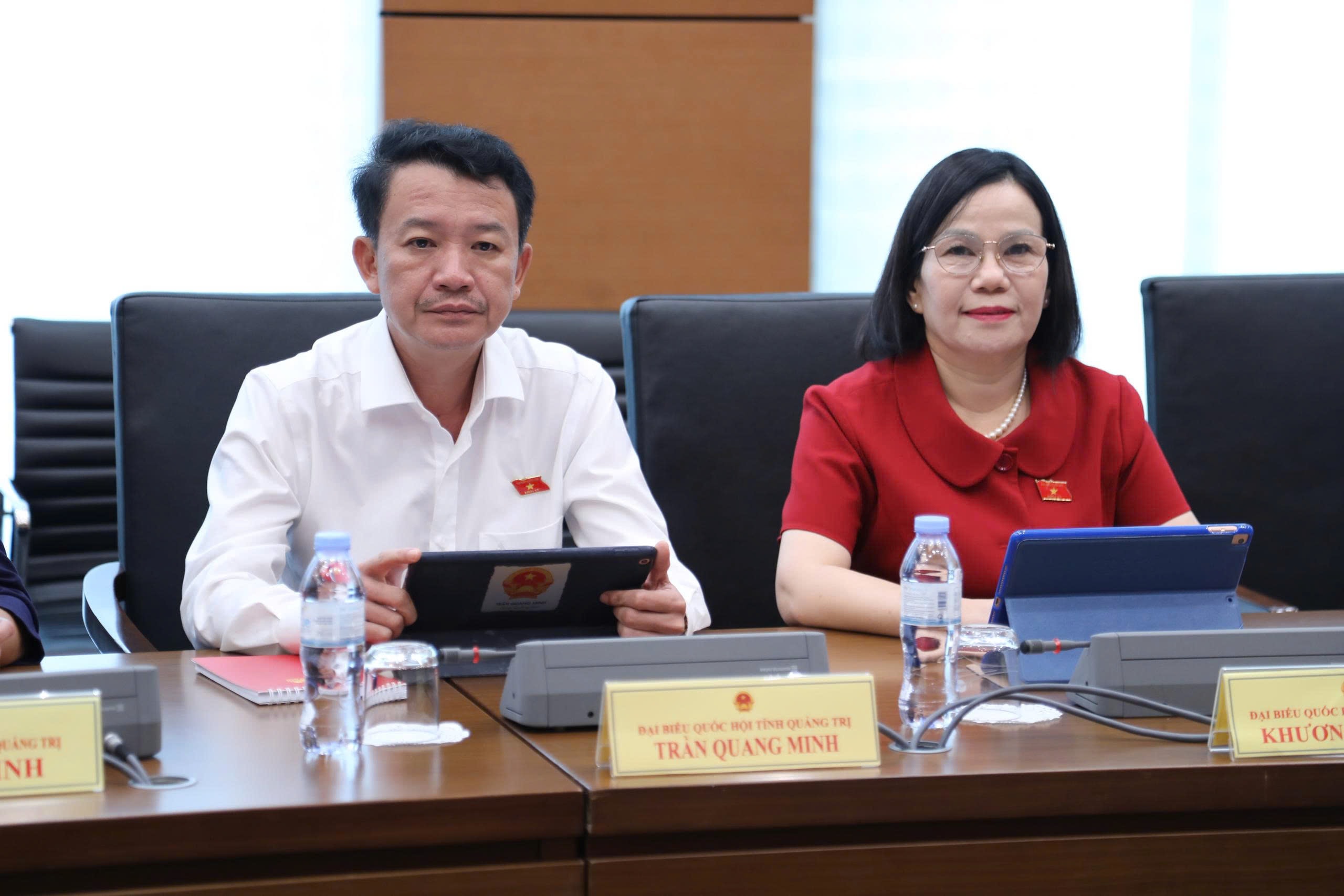
Contributing specifically to the draft Law on Civil Servants (amended), delegates acknowledged and highly appreciated the draft law which has amended and supplemented many new and progressive points. That is, managing civil servants according to job positions, clearly defining groups of titles associated with corresponding authority and responsibility, overcoming the situation of average spread in salary payment and use of civil servants. The mechanism of decentralization and delegation of authority has been expanded, accompanied by clearer accountability for heads of public service units. New regulations on evaluating civil servants in a multi-dimensional direction, associated with income, personnel management, people, requiring updating evaluations to the common system, helping to be transparent...
Delegates also suggested that it is necessary to continue to amend and supplement regulations allowing civil servants to sign labor contracts, sign service contracts, participate in capital contributions, and participate in the management of non-public enterprises in the direction of: clearly defining the declaration and approval mechanism, a clear list of prohibited items; and defining the responsibilities of leaders in controlling and handling violations, if any.
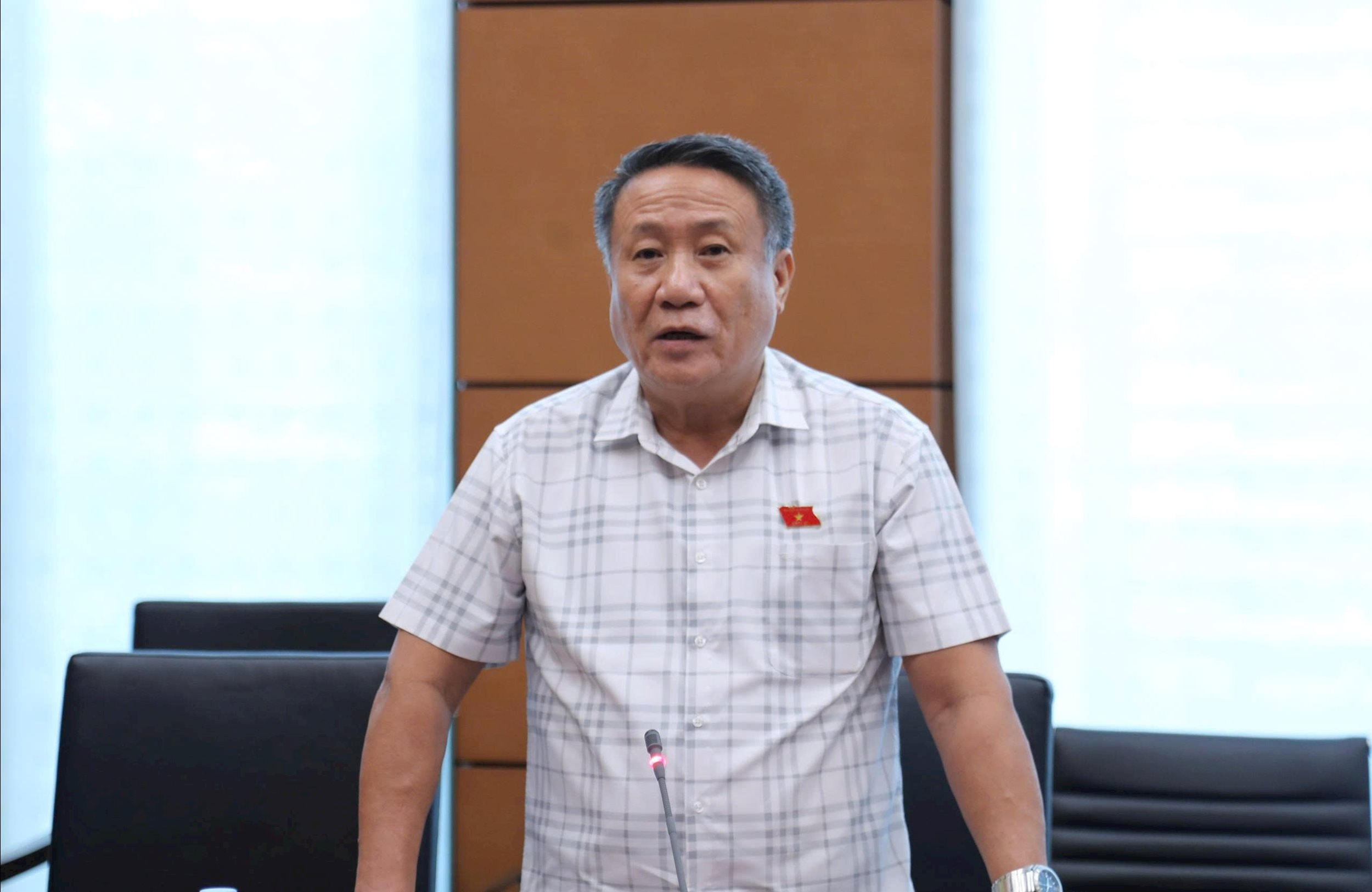
According to delegate Ha Sy Dong (Quang Tri), the draft law stipulates the evaluation of civil servants and assigns the Government to specify in detail, but it is necessary to state mandatory minimum criteria such as: output results, level of task completion, level of people's satisfaction... Regulations on the disciplinary statute of limitations lasting 10 years or not applying to certain acts as in the draft law are necessary.
“Therefore, it is necessary to study a reasonable time limit to avoid creating a mentality of apprehension and fear of responsibility. At the same time, there should be a principle to protect those who dare to innovate and take responsibility for the common good and have a mechanism to exempt and reduce responsibility,” delegate Ha Sy Dong suggested.
Also according to delegate Ha Sy Dong, regarding salary payment according to job position, it is recommended that the Government issue a new salary framework, stipulate the range, resources, implementation roadmap, have mid-term assessment milestones, ensure substance, avoid formality. Along with that, clearly stipulate the criteria, procedures, and authority to approve extra-hours professional activities of civil servants, have a list of absolute prohibitions on participation in extra-hours activities. Soon issue a set of unified quantitative assessment criteria nationwide, integrate the national civil servant database, connect the national database; review prohibited acts, in accordance with the current legal system.
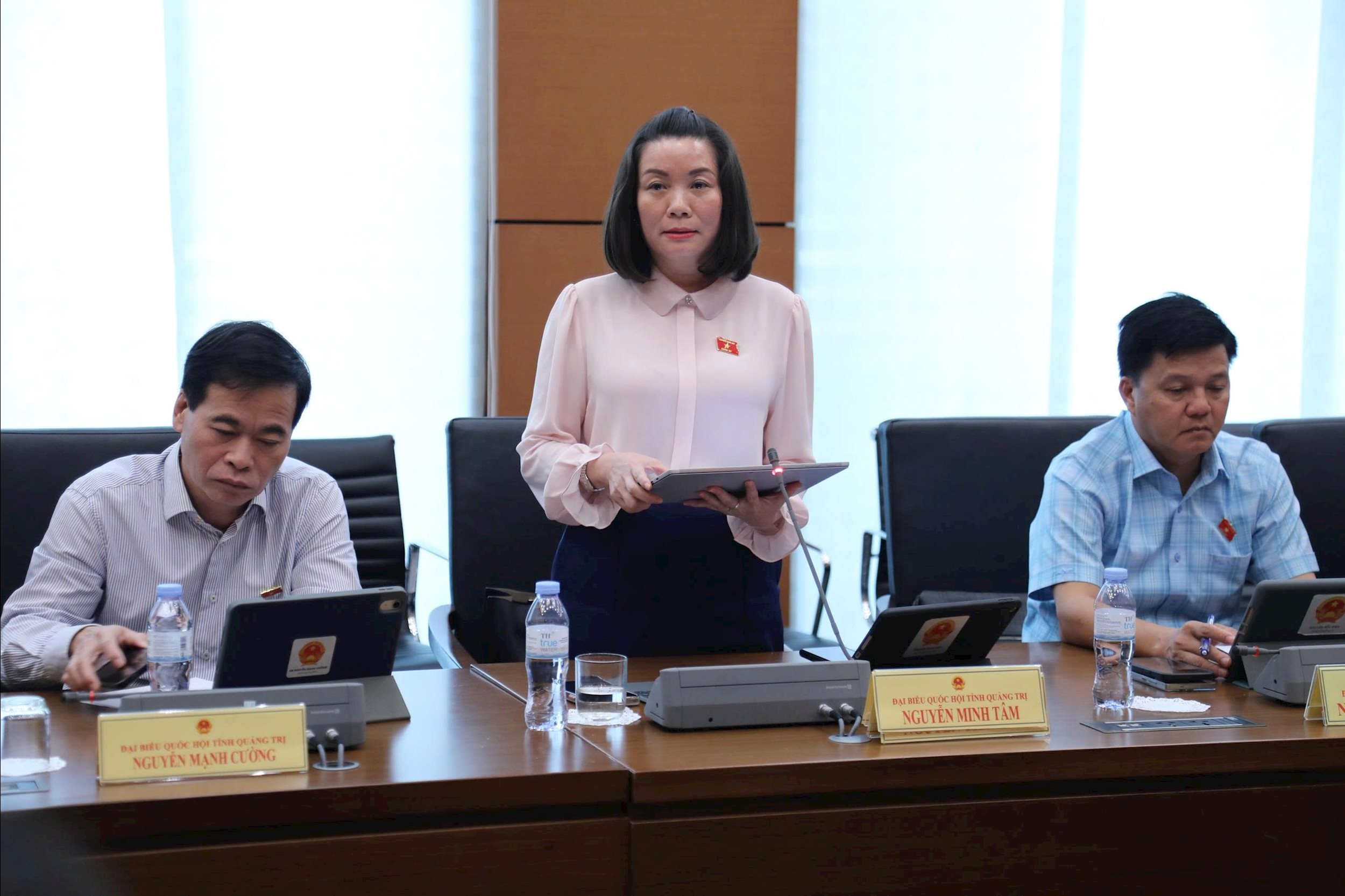
Concerned about the regulations on the rights of civil servants to sign contracts for professional activities and business activities, delegate Nguyen Minh Tam (Quang Tri) said that, to ensure strictness in regulations and have a legal basis to resolve disputes if they arise in practice, it is proposed to add the phrase "in writing" after the phrase "must have consent", to ensure strictness in the draft law.
Regarding complaints about the quality assessment results, the delegate suggested that the drafting agency consider clearly defining the time limit within 5 days from the date of receiving the document, then determine the time of receiving the document. Because, we are currently implementing the processing of documents on the network environment. Therefore, when deciding to recognize the quality assessment results transferred on the network environment, there will be a specific date and time, but the recipient of the document has not viewed the document at the correct time of receipt. Therefore, it is suggested that the drafting agency consider clearly defining the time to ensure convenience during the implementation process.
Regarding civil servant discipline in the draft law, delegates proposed to amend and supplement Clause 2, Article 36 in the direction: Civil servants who are being disciplined, investigated, prosecuted, or tried are not allowed to run for election, be nominated, appointed, transferred, rotated, seconded, trained, or fostered according to the provisions of law and regulations of competent authorities.
More specific regulations, clearly defining responsibilities in the operation process
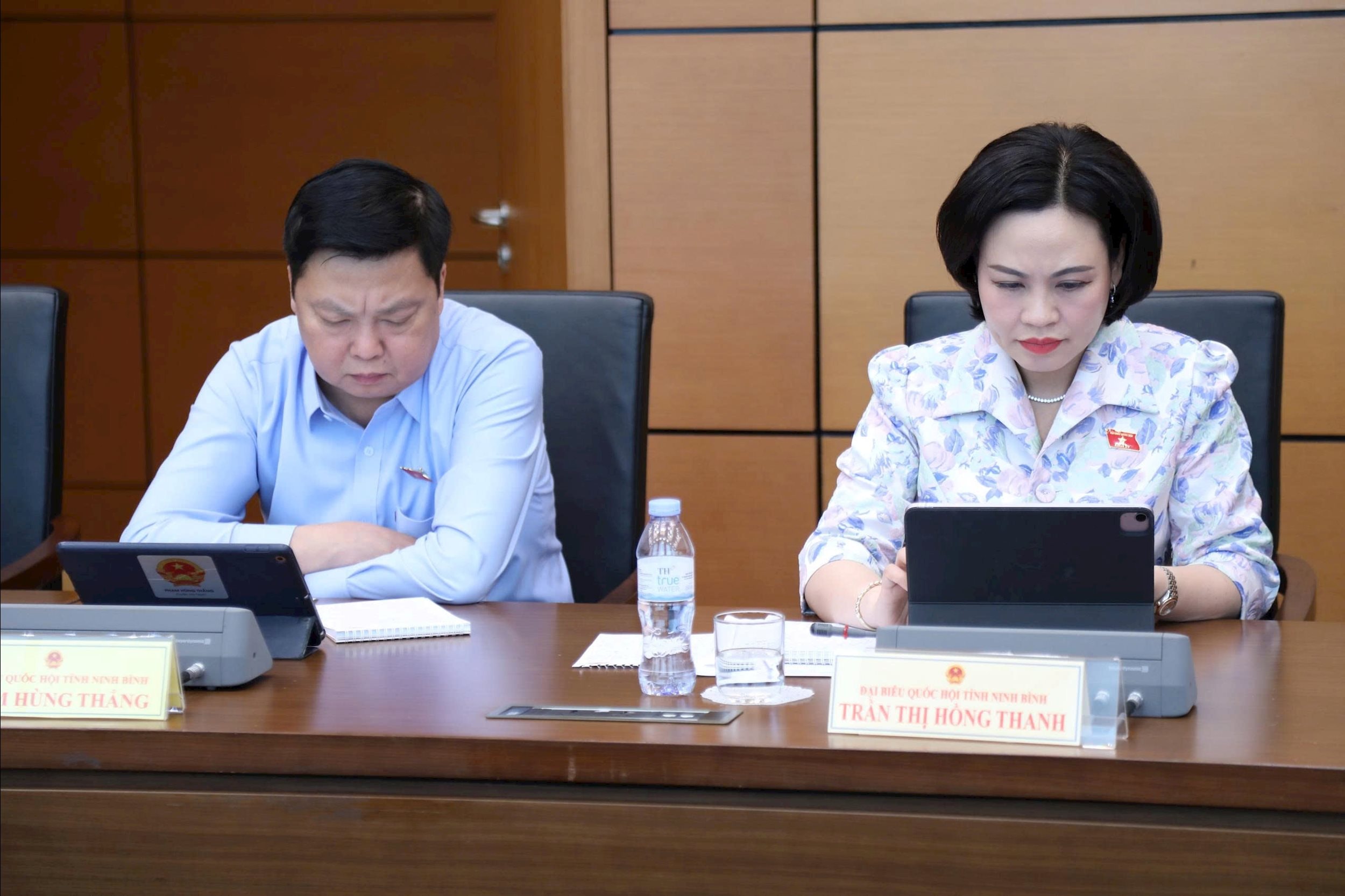
Discussing the Draft Law on Civil Aviation of Vietnam (amended), some delegates said that the draft law's proposal to transfer the aviation security management from the Ministry of Transport to the Ministry of Public Security is reasonable, consistent with reality, and ensures national security. However, this provision will entail requirements on resources, personnel, databases, and materials, and how the transfer will be carried out has not been clearly defined in the draft law. Therefore, it is recommended to provide more specific regulations and clearly define responsibilities in the management process.
Delegates appreciated the draft law for its many progressive points. In particular, it proposed to remove 9/25 administrative procedures, but it needs to be carefully reviewed to ensure substantial reductions, otherwise there will be a situation where administrative procedures are removed in this law but expanded in another law.
Regarding planning and connecting transport infrastructure, delegate Ha Sy Dong (Quang Tri) proposed to study and supplement regulations that are closely linked to the ground infrastructure system, to maximize investment efficiency. At the same time, it is proposed to supplement regulations in Article 7 of the draft on aviation industry development, clarify the mechanism for using land and defense assets in the aviation sector, the responsibilities of localities and each ministry, to avoid conflicts and overlaps in management work.
Some opinions suggest that it is necessary to review regulations related to planning laws and the Land Law and related laws; supplement regulations on implementation resources to ensure feasibility when the law comes into effect. At the same time, it is expected that amending the law in the direction of shifting from strict management to smart management will create strong development, in harmony with other transport sectors.
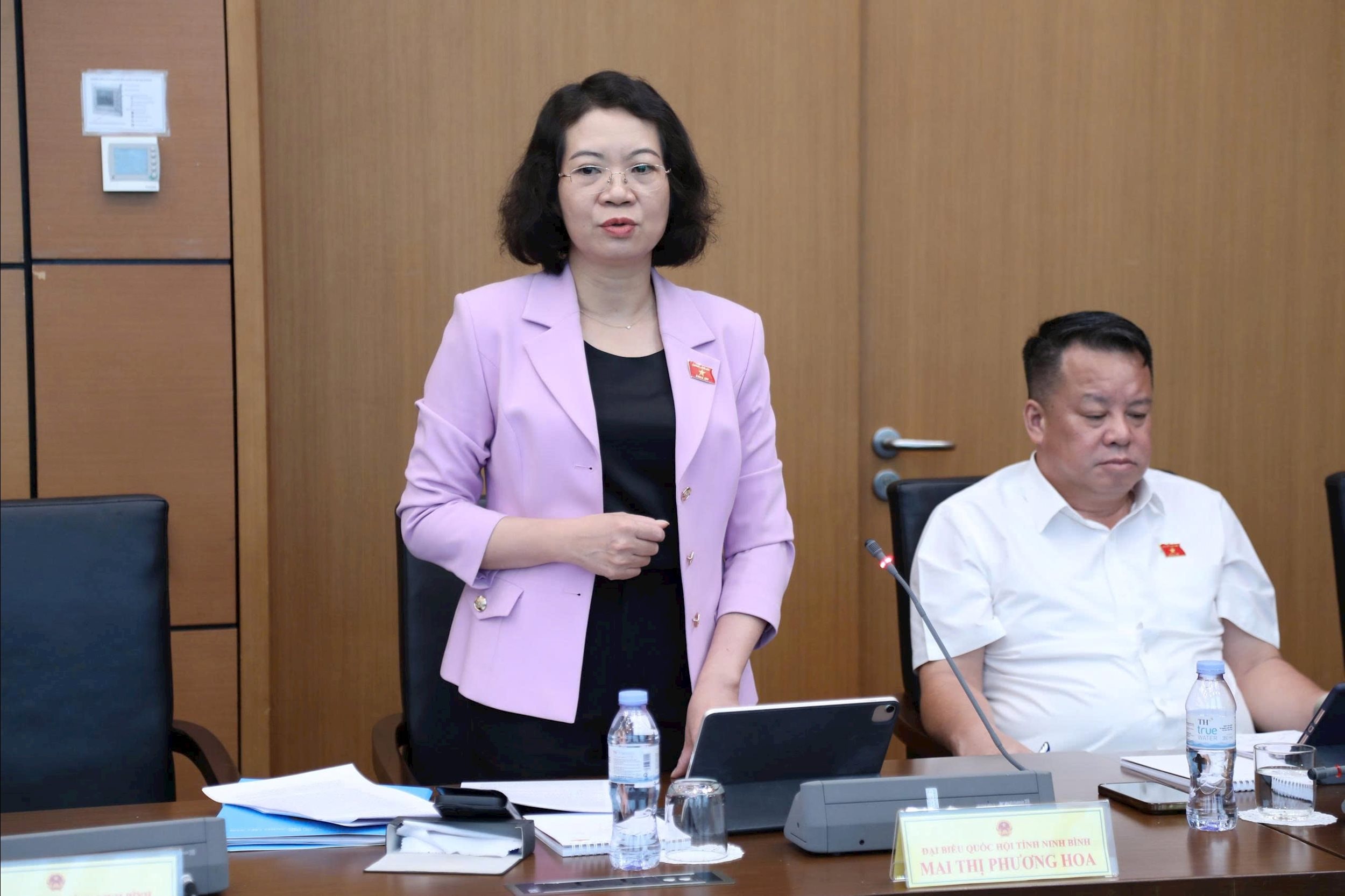
Regarding the civil aviation development policy stipulated in Article 5 of the draft, which stipulates that the State supports investment in civil aviation development in areas with particularly difficult socio-economic conditions, remote areas, mountainous areas, and islands in Clause 3, delegate Mai Thi Phuong Hoa (Ninh Binh) said: this policy is completely correct, but the State should not only support investment in difficult areas but also pay attention to supporting other areas, including areas with developed economic conditions, areas with potential for tourism development. Because airports will support the economic development of the country, the region and localities, especially localities with potential and advantages in tourism.
Regarding investment in airport construction and airport facilities in Article 30 of the draft law, delegate Mai Thi Phuong Hoa said: Vietnam currently has 21 state-owned airports; 1 private airport and is currently building an international airport (Long Thanh International Airport) and many airports are under construction.
The delegate emphasized that the policy of investing in the construction of airports and works as stipulated in Articles 28 and 30 of the draft is necessary. Accordingly, airports belonging to airports are exploited for dual use between civil and armed forces; the owner of national defense and security works decides to put the works into dual use.
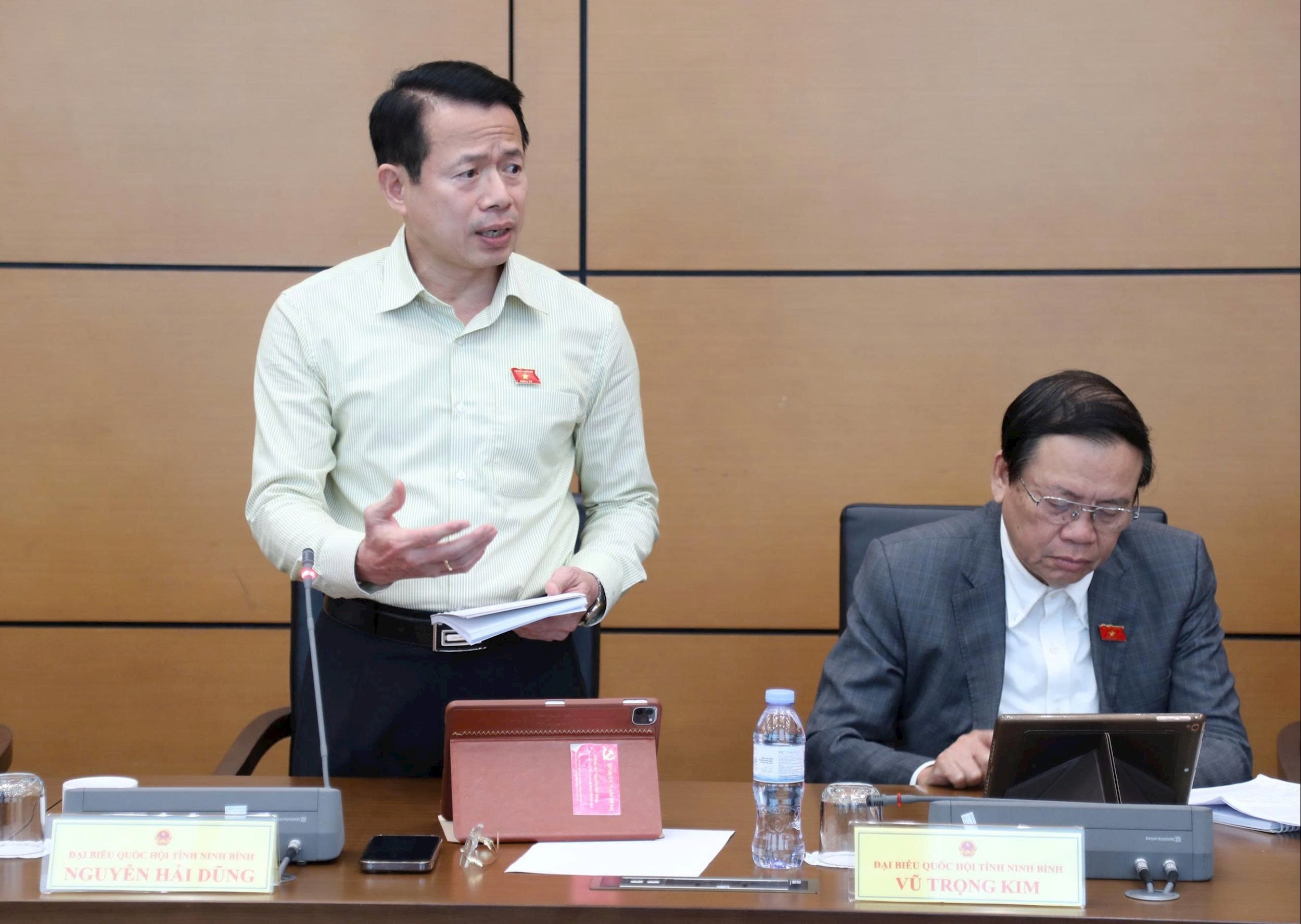
Delegates also commented that currently, almost all airports are national defense and security land, so investment in new construction, upgrading, expansion, maintenance, and exploitation must go through procedures to transfer land use rights and land use purposes, which also creates certain barriers. Therefore, with an open mechanism like the draft law, in the near future, airport construction planning in many localities will be more open.
Source: https://daibieunhandan.vn/can-quy-dinh-cac-tieu-chi-danh-gia-vien-chuc-10392398.html








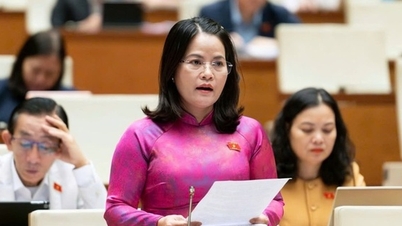

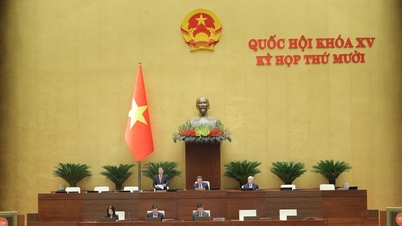
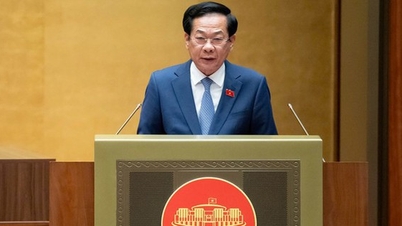

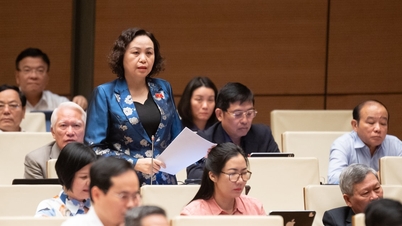


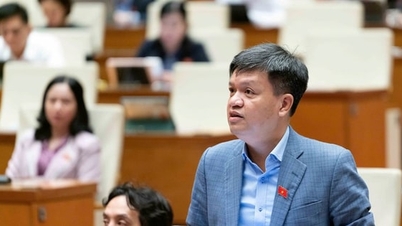

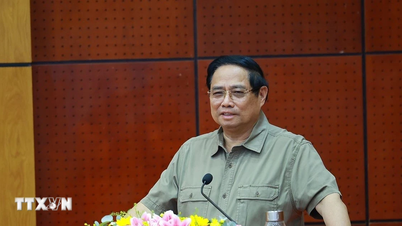
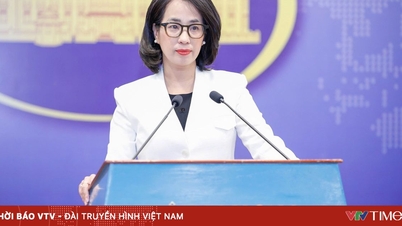

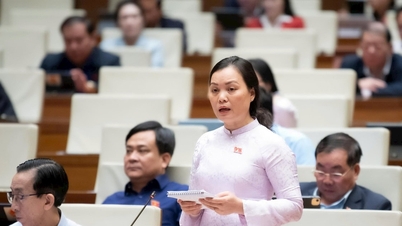
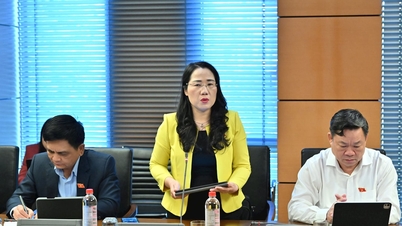
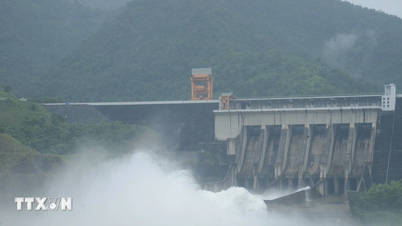
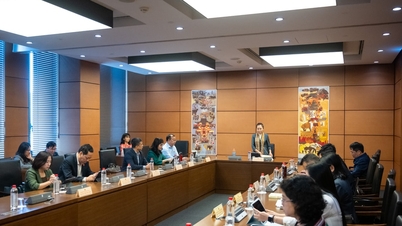




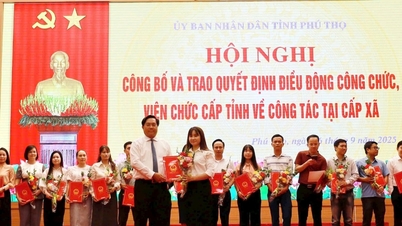
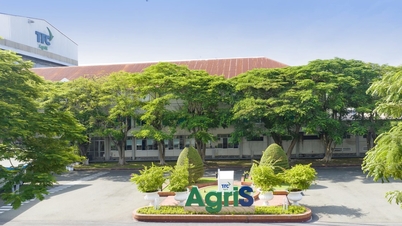
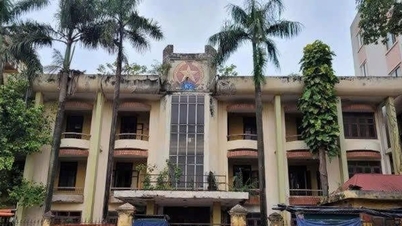

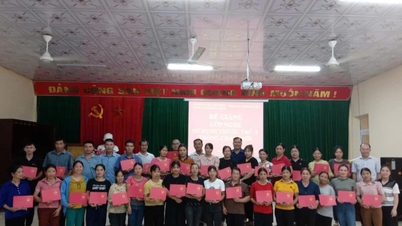
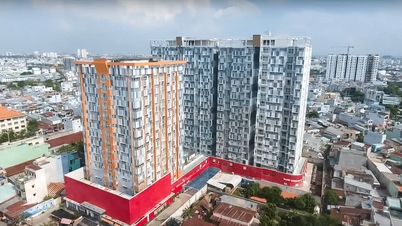
























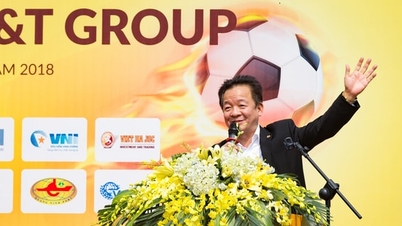







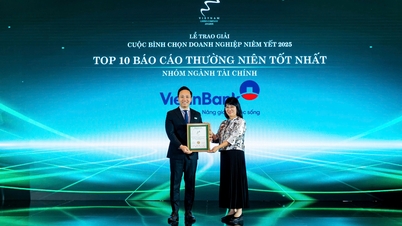








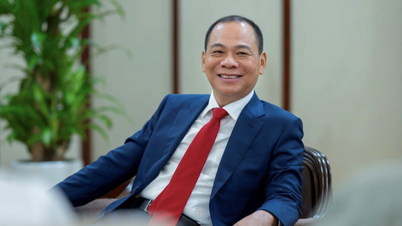
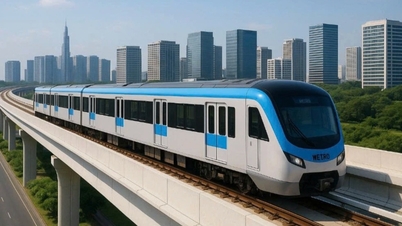


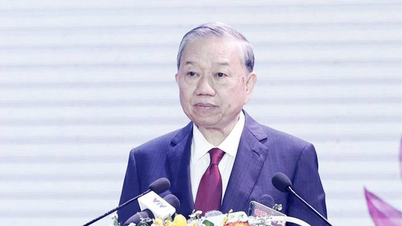






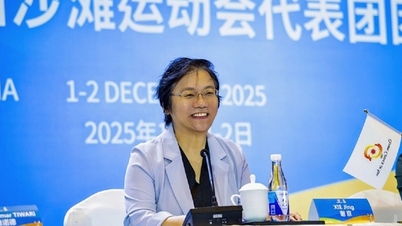

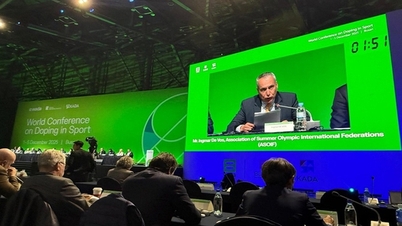
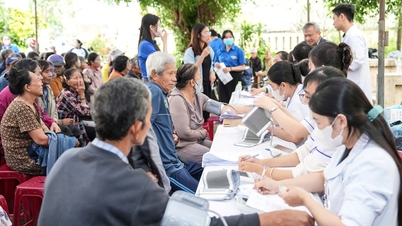

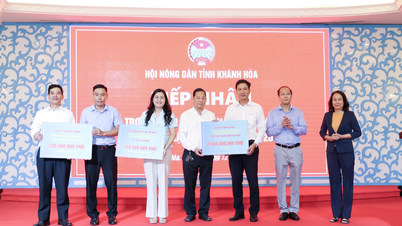

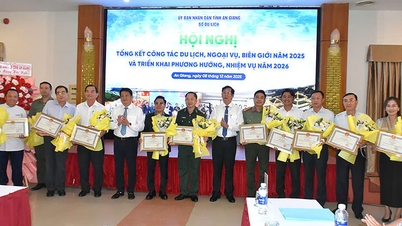

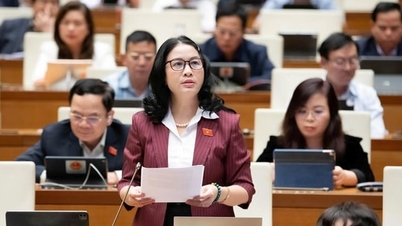
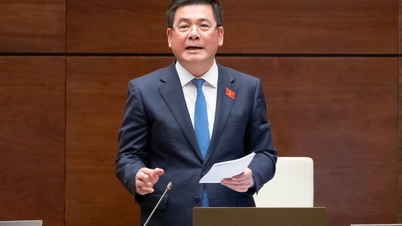












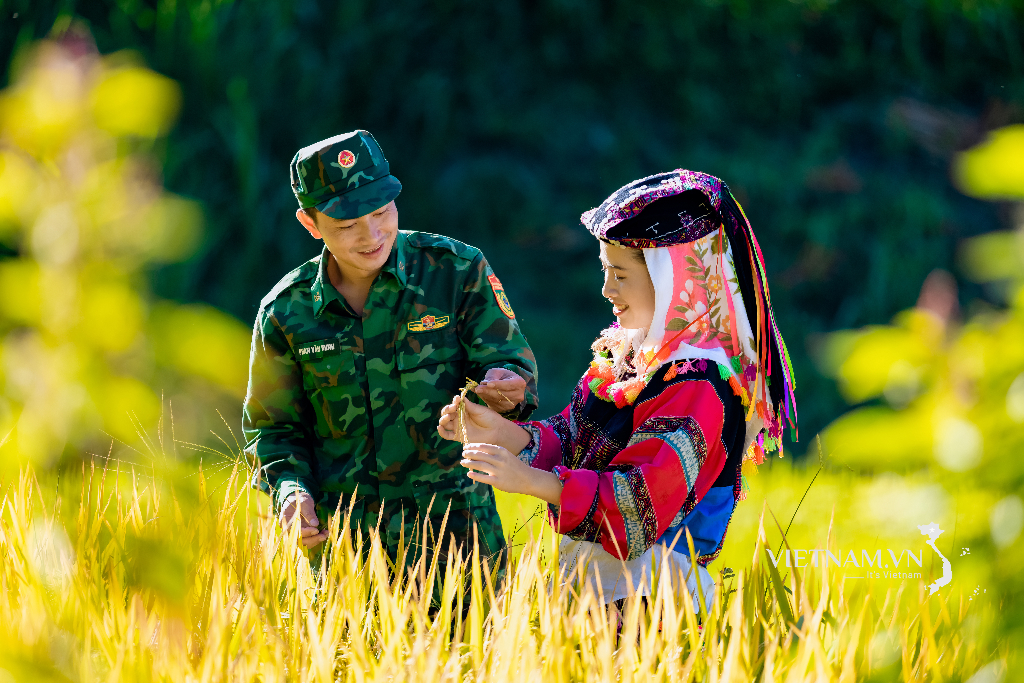
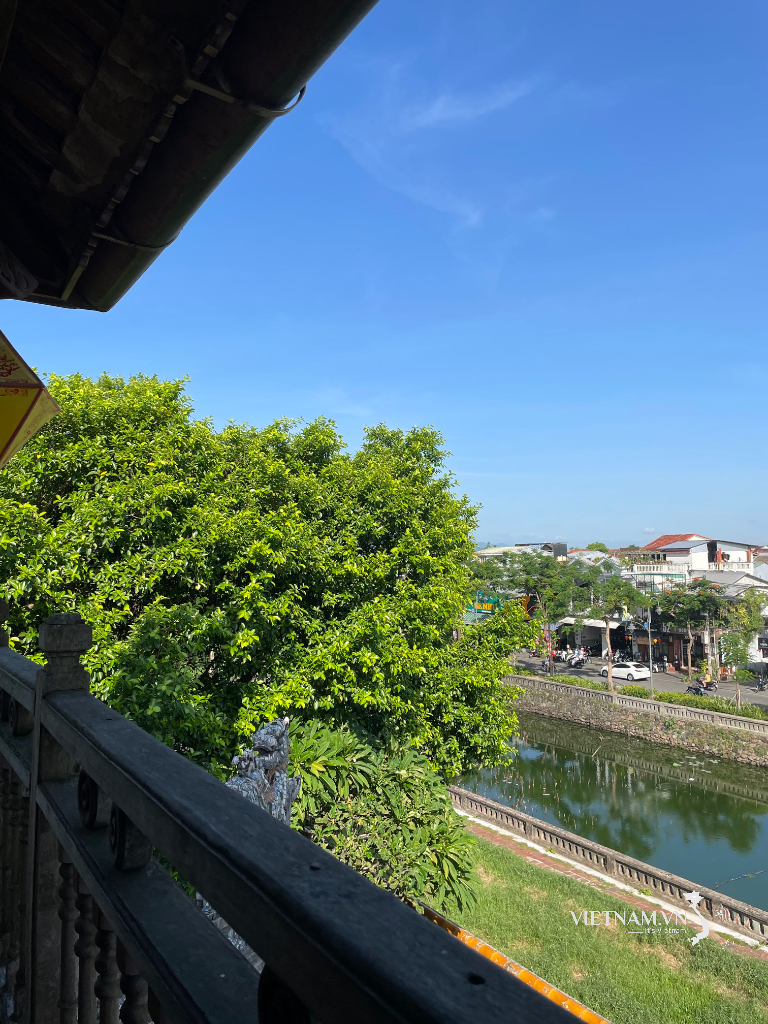




Comment (0)